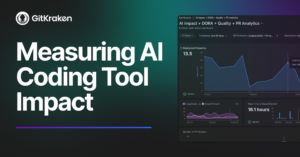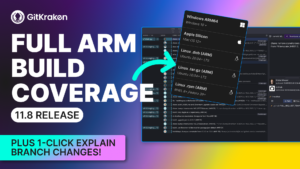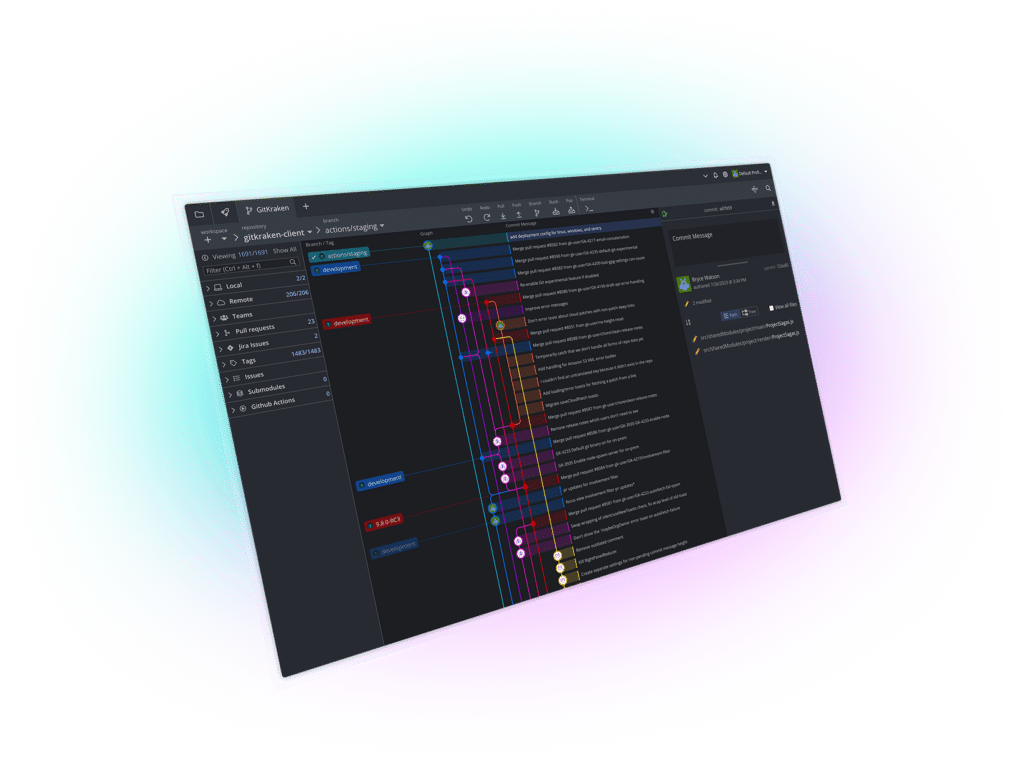This post is part of our new blog and video series dedicated to the “First 5 Years in Software Development.” This series was created specifically for early professionals coming out of school, as well as those who may be making a career change from another field or role into software development. Topics include how to get your first development internship, tips for optimizing your resume, succeeding as a remote employee, and more. Stay tuned for new posts and videos each month.
Today’s guest is Maggie Hutter. Maggie is an HR Recruiter at GitKraken. She has been at GitKraken for a little under one year, but she’s been working in recruiting for nearly seven years. She initially started in agency recruiting and then shifted to focusing on technical roles at tech companies over the last couple of years.
A Strong Resume Is Critical, Right?
Yes. Resumes and LinkedIn are super important. In some cases, I would argue that LinkedIn might even be a little bit more important. It’s a really powerful tool for networking and finding jobs. And from a sourcing perspective, keeping your LinkedIn profile up to date and relevant helps recruiters easily find you in their targeted searches.
If you are actively looking for your next role, you want to keep your LinkedIn profile up to date and turn on the ‘open to work’ feature on your profile. Recruiters build that selection into their search criteria so they can easily find candidates like you. Now, instead of having to do all the work of searching and applying for every possible role, you can kind of flip the script and have companies recruit or ‘apply’ for you.
And even if you are currently employed, it’s smart to leave the door open for networking opportunities where you can selectively take conversations that you’re interested in.
Where Else Should Software Developers Keep an Updated Profile?
Hiring managers for software positions will do their homework beyond looking at your resume and LinkedIn profile. I recommend creating a profile README on your preferred repository hosting platforms like GitHub. The same goes for any open source projects you’re currently involved in or have contributed to in the past.
What Common Mistakes Do You See with Developer Resumes?
First, LinkedIn:
- Not having a profile picture. As a recruiter, I like being able to put a face to the name.
- Omitting an ‘About’ section. It doesn’t have to be called that, but at a minimum, put a short little note about your relevant experience and a quick overview of your career.
- Being light on skills, keywords, and recommendations. Add keywords to your skills section, and ask for endorsements or recommendations from past colleagues and others in your network whom you have professionally interacted with.
And for resumes, some common mistakes include:
- Being too generic. The goal is to be as specific as possible highlighting coding languages and frameworks you’ve used. Also, you want to tailor resumes to specific jobs. It’s a miss to not weave in specific language and keywords from a job description that align with your experiences, skills, and accomplishments.
- Not including a company description or summary. Think of this as a way to frame your experience around company details or metrics. Especially if it’s a smaller or lesser known company like a startup, you can help yourself stand out by highlighting details around your company’s industry focus, company stage, target market or customer, are they a SaaS company? Was it a product-led growth model? etc.
How Important Is It to Include Performance Metrics?
In terms of performance metrics, I look for developers to highlight the measurable impact they’ve had on software development projects.
What problems are you solving with technology? Where do you fit in the project flow? Did your work result in improvements to code quality? Did you help optimize performance of an application or introduce new features that increased user engagement?
How Can a Developer Get Their Resume to Stand Out From Others?
It comes down to overall relevancy and being able to clearly articulate your value to the business or role you’re applying to. Do you have proficiency with the required tech stack? What types of products or audiences do you have experience developing for? What was the scope of your work? If you worked at a company with the same kinds of audience or the same volume of users and you can make that clear, that’s going to be extremely relevant and stand out from someone who might have a similar experience but doesn’t present it in a way that easily shows value.
What Are the skills or Experiences That You’re Seeing as Being in Really High Demand Right Now?
The world of software development is constantly evolving. And the most in demand skills can vary based on industry and market trends. We’re all seeing a lot of artificial intelligence. There’s obviously a lot of growth there. I recently saw some survey data from one of the top job matching platforms that said machine learning, AI and data science are going to be the hottest focus areas for this year. So companies are prioritizing folks who have skills and experience in AI and machine learning.
I am also seeing companies prioritizing more specialized and management-oriented roles, like backend engineers and engineering managers.
And outside of roles or specific technologies, companies are definitely looking for intangibles like empathy, curiosity, and the ability to collaborate across functions.
Does a Developer Need to Have 100% of the Skills and Experience Outlined in a Job Description?
Many companies approach job descriptions as more of a guideline. They’re not necessarily hard and fast rules. I would say if you meet at least 50-60% of the requirements, you should feel comfortable applying. Plus, it gets you on the recruiter’s radar, and they may see your background and consider you for other roles.
Additionally, in some cases it doesn’t make sense to apply to a role that you’re a perfect fit for because you may not be giving yourself room to learn and grow.
Does It matter Where You Got Your Education or Degree From?
It depends. Having a CS degree is certainly something that recruiters and hiring managers are taking into consideration. However, sometimes candidates don’t have that traditional educational background but they have work experiences to make up for it, and that experience may actually stand out more than a traditional university degree. I definitely see more companies and recruiters, including GitKraken, considering candidates with non-traditional backgrounds. Maybe it’s education through online courses, bootcamps, or being self-taught. A mix of talent creates a more diverse team and we can incorporate different ways of thinking about how to make products better, especially if we are creating for a diverse mix of users or customers too.
Ultimately, the first main goal is to position yourself well enough to get the interview. At that point, recruiters really want to see how a candidate performs in the interview process, and they’ll tend to weigh that more than the background on paper, so to speak.
What are Some Tips for Networking?
There are definitely some networking techniques candidates can use throughout the job search process. My first tip is to consider your narrative. Instead of “I’m looking for a new job, how can you help me?” You should network with a mindset of “ here’s what I can offer, here’s how I can help you and the business solve problems.”
Another smart tactic is to reach out to people who might be in roles or at companies that you’re interested in and ask for informational interviews. Pick their brain and learn from them and figure out what has their trajectory been and what milestones did it take them to get to where they are and where you are trying to go.
Any Advice for Developers Looking to Transition to a New Role?
Update your resume and LinkedIn to reflect the skills and experiences that align with the new role you want. There are a lot of online courses that come with certifications or badges that you can add to reinforce your experience and make yourself a stronger candidate.
Seek out extra work projects or personal projects or pick up some freelance gigs that can help get you that experience you need to pivot. On that narrative note, you want to be able to show and speak to steps you’ve taken to show your interest and learn the necessary skills.
How Valuable Are Career Fairs?
Career fairs are a great resource for candidates and recruiters. Here at GitKraken, we have had a lot of success generating a strong pipeline of talent from college career fairs. We’ve found interns who have gone on to accept full time roles here.
And outside of career fairs, there’s a lot of other resources that you can leverage like career support groups. There are online talent communities and meetups, and free mentoring from askadev.org.
My advice to both candidates and recruiters is to diversify your resources to expand your networking reach.
Check out these other posts and videos in our “First Five Years in Software Development” series.
 GitKraken MCP
GitKraken MCP GitKraken Insights
GitKraken Insights Dev Team Automations
Dev Team Automations AI & Security Controls
AI & Security Controls







